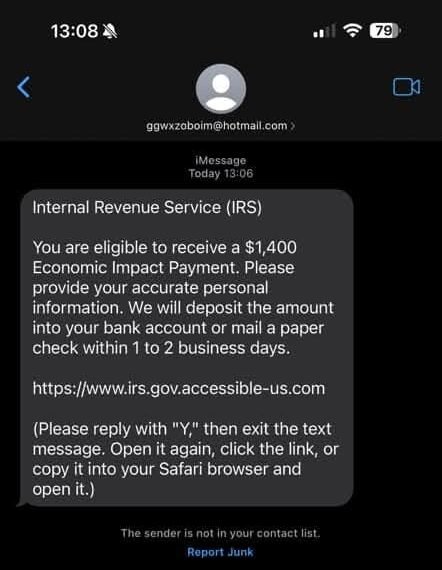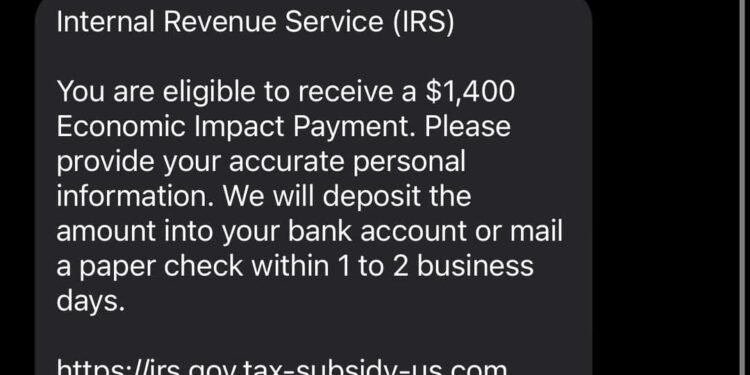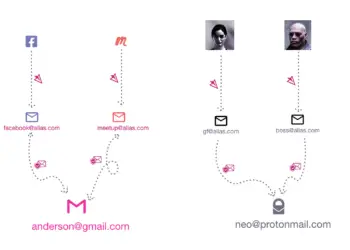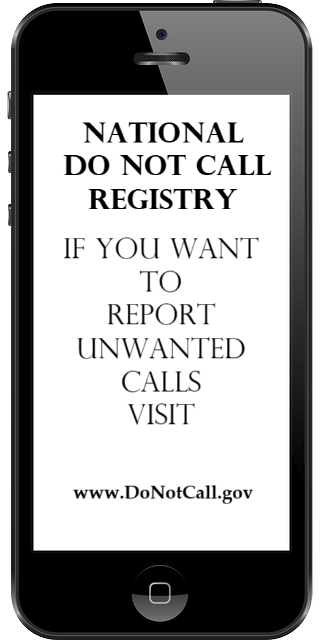In recent weeks, we’ve seen a rise in scam text messages impersonating the Internal Revenue Service (IRS), targeting individuals by falsely promising tax refunds or economic impact payments. These messages are designed to steal personal and financial information, putting you at serious risk of identity theft and financial loss.
Here’s what you need to know to protect yourself from these scams:

What’s Wrong with These Messages?
- Official IRS Communication: The IRS does not communicate via text messages for tax refunds, economic impact payments, or other tax-related matters.
- Suspicious Links: The links provided are not legitimate IRS websites. They are designed to steal your personal information, including Social Security Numbers, bank account details, and more.
- Email-Like Sender: The messages come from random email addresses like
[email protected], which is a clear red flag. Legitimate IRS communication will always come from official channels.
How to Spot and Avoid IRS Scams
Know How the IRS Communicates:
- The IRS will never text, email, or contact you on social media for personal information.
- Official communication is done via postal mail or through secure online portals like IRS.gov.
Inspect the Link:
- Real IRS websites always end in
.gov. Any other domain is fraudulent.
- Real IRS websites always end in
Don’t Click or Respond:
- Do not click on any links or reply to the message. Interacting with the scam can lead to malware downloads or data theft.
Verify Directly with the IRS:
- If you’re unsure, visit the official IRS website (www.irs.gov) or call them directly to confirm any claims.
Report the Scam:
- Forward the scam text to SPAM (7726) or report it to the IRS at [email protected].
What to Do If You Fall Victim
If you’ve already clicked on a scam link or provided personal information, take immediate action:
- Contact Your Bank: Inform them of the potential fraud and monitor your accounts for suspicious activity.
- Report Identity Theft: Visit IdentityTheft.gov to report the incident and receive guidance.
- Update Security: Change passwords for sensitive accounts and enable multi-factor authentication.
Stay Safe and Informed
Scammers continue to find new ways to trick people, especially during tax season. Stay vigilant, share this information with friends and family, and always verify suspicious messages through official sources.
Let’s work together to create a safer digital space. For more tips and updates, subscribe to the SecureCyberNetwork Newsletter and stay ahead of online threats!
We at SecureCyberNetwork are dedicated to providing you with the latest updates, tips, and expert advice to keep you safe in the digital world.
Your commitment to staying informed is about your safety, the safety of your loved ones, and the safety of our community.
Your involvement is powerful.








